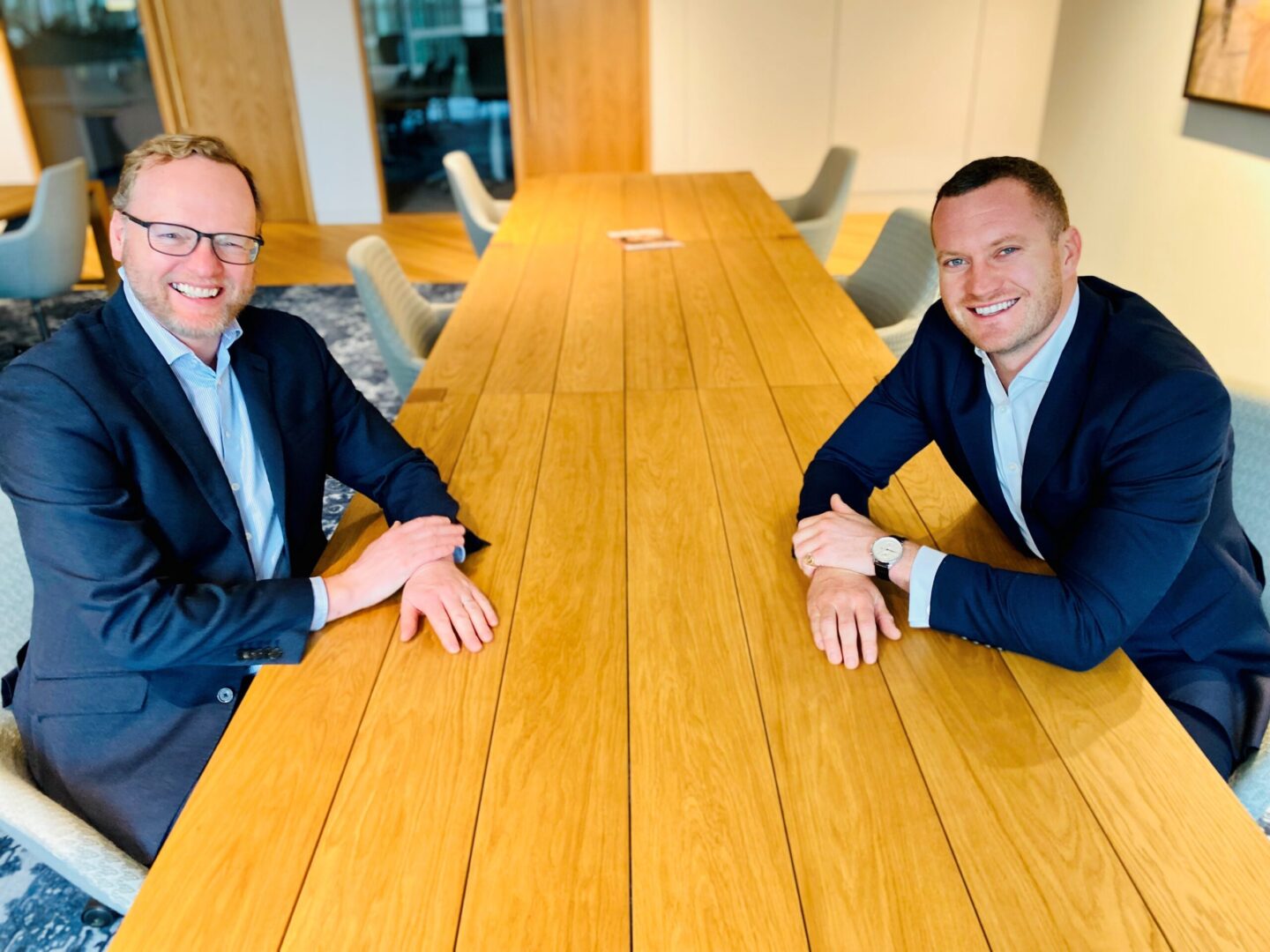
In the latest in our regular series, Portfolio Adviser hears from Wellington Management’s head of EMEA client group Roy Smale (pictured, left) and head of UK & Irish Distribution Matt Knight (pictured right)
Which particular asset classes and strategies do you anticipate your intermediary clients focusing on in 2023?
RS: Wealth clients are increasingly focused on accessing differentiated sources of returns. We are seeing increased investor interest in alternatives, including private equity and private debt, fixed income, and innovative sustainable investments.
Should end-investors – and, by association, asset managers – be thinking beyond equity and bond investments? Towards what?
RS: Last year was a difficult one for many end investors due to the high correlation between equities and fixed income. The macro team at Wellington believes a less stable equity-bond correlation is symptomatic of the new regime we have entered where market cycles will oscillate more quickly than we are used to, and inflation will be structurally higher and more volatile.
Dealing with this regime shift demands a research-based approach but also greater diversification and flexibility to respond to the risks and opportunities associated with higher volatility. At present, we see significant opportunity for end-investors in fixed income – given the significant back-up in yields, in less-correlated alternatives as well as in select equity strategies.
“Wellington’s strength lies in bringing decades-long experience of public-market investing into private markets.”
To what extent do private assets and markets fit into your thinking? What are the current pros and cons for investors?
RS: As a firm, we already manage around $30bn (£24.4bn) in alternatives – and exposure here has become increasingly front-of-mind for our clients. We are currently working to expand our alternatives and privates offering in EMEA to meet this growing demand.
Wellington’s strength lies in bringing our decades-long experience of public-market investing into private markets across equities and fixed income. Our collaborative investment approach is something that investors find particularly beneficial as it allows our portfolio managers to source insights from across the asset spectrum.
MK: UK intermediary clients have gone through a 10-year bull market and now are experiencing a more volatile performance journey. They still need to draw an income, but they also need their portfolios to meet their investment outcomes without capital drawdowns creating a negative compounding impact.
Institutional clients have been accessing private markets for many years and we are now seeing renewed interest in private market investing within the wealth channel as ultra-high-net-worth clients consider alternatives and private equity exposures because of the long-term return potential and diversification benefits.
“Being a strategic partner means ‘bringing the whole firm’ to the table.”
Given client and regulatory pressure on charges, how is your business delivering value for money to intermediaries and end-clients?
RS: Our clients want to do more but with fewer managers in the face of industry consolidation, fee pressure and a growing desire to extract greater value from manager relationships. Covid accelerated this trend, putting due-diligence for new managers largely on hold and leading large asset owners to lean into their existing strategic partnerships.
Wellington has benefited from this trend – for example, in 2022, nearly half our new business came from our existing partnerships, while a recent collaboration with a global private bank enabled it to complete its highest-ever private equity fund raise. Within the local markets, we are developing new strategic partnerships with local wealth managers and adviser networks. The UK has been a great example.
MK: As large allocators are increasingly focused on preferred commercial terms – alongside access and knowledge sharing – it is vital to be a thoughtful long-term partner and to recognise that clients want to spend their risk budget where it delivers alpha. Being a strategic partner also means ‘bringing the whole firm’ to the table, sharing knowledge, experience, and insights from across the Wellington ecosystem.
We also want to build on our many years of experience in the sub-advisory business in the US and expand that business in the UK and across EMEA. Sub-advisory is in our DNA and is another way we can be a good partner with our wealth-channel clients at the earlier stages of their journey.
How much of your distribution is currently oriented towards ESG issues and sustainable investing? How do you see the responsible side of investing evolving?
RS: Sustainable investing is a strategic priority for Wellington, and our clients also view it as a key area of growth in the coming years. Within our impact suite of products, we have taken the best practices from our private assets business and combined them with our public markets experience. We also believe very strongly in being good stewards on behalf of our clients as this is an important source of value creation.
MK: As a firm, integrating climate science into our investment approach is key. We have two really important climate partnerships with two of the world’s leading institutions in their respective areas of climate change: Woodwell Climate Research Center and Massachusetts Institute of Technology.
For clients taking a long-term view, they need to know how climate is going to change, what the physical and transition risks are and how we can help guide them through a sensible transition. The research partnerships we have with Woodwell and MIT are key to that scientific analysis. We now plan to add more SFDR Article 9 funds to our existing suite of sustainable investment solutions.
How are you now balancing face-to-face and virtual distribution? Have you identified aspects where one is especially better (or worse) than the other?
RS: This is a people business so the best approach is a blend of both. While in-person meetings are still very important, we recognise everyone is trying to be more efficient with their time. We are finding portfolio reviews are increasingly carried out online whereas general business discussions and new product conversations typically still take place in person.
What aspects of your lockdown routine – personal or professional – have you continued as people migrate back to office working?
RS: Wellington has adopted a flexible work environment that give us the choice of which days we work in the office and which days we work from home. I have found maintaining this flexibility extremely beneficial.
MK: The firm’s continued more informal approach to work attire has been well received – it is nice not having to wear a suit and tie to the office every day. Keeping fit during lockdown was also important to me. I find running gives me time to think and clear my mind, so I have tried to maintain that routine – although the recent spell of cold weather has not helped!
How did you spend your Christmas or winter break?
RS: My family moved to a new property not that long ago, so I had a very quiet Christmas with lots of family time. Instead of taking a winter break this year, we hosted 14 guests over the festive period. I spent most of my spare time working through my ‘snag list’ of outstanding work that needs still needs to be done around the house.
MK: My Christmas was split across London and Bristol, with my family and my girlfriend’s family. I also enjoyed some winter sun in February, when my girlfriend and I went away to celebrate her birthday. Looking to future trips, I may have set the bar a bit high for myself as I have started reading a great book, The Secret Race: Inside the Hidden World of the Tour de France, which is really interesting if you are a keen cyclist.
In what ways do you see the asset management sector evolving over the next few years?
RS: As Matt mentioned, we see the trend towards sub-advisory increasing in the years ahead and we feel very well-positioned for this growth, alongside the increasing appetite for sustainable investing and alternatives. We also expect further consolidation of partnerships in the asset management industry – and we are optimistic about the role Wellington can play in this area.
MK: In addition to the consolidation and the associated need for sub-advisory support, we see a heightened dialogue on how to give end-investors access to alternatives and private markets, particularly within the UK wealth and DC channel. While there are currently still some operational hurdles and infrastructure issues to overcome, we are excited about Wellington’s participation in the evolution of this space over the next decade.










